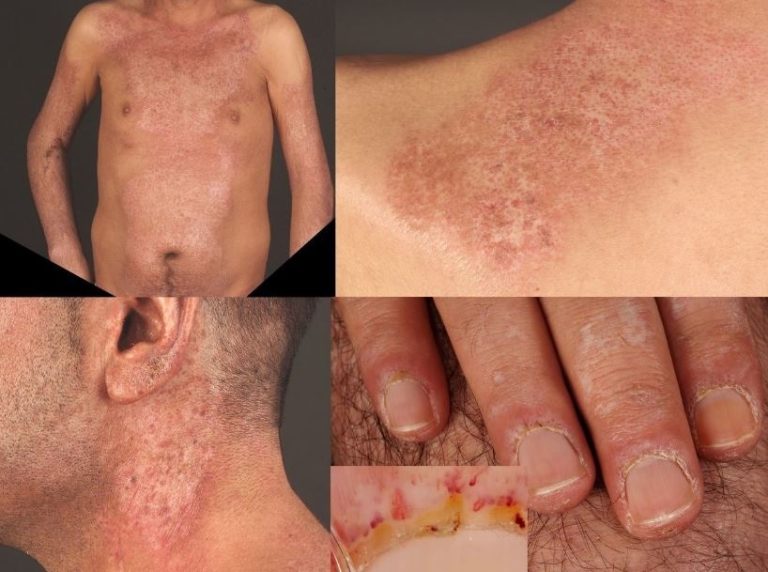Understanding Insomnia: Causes, Symptoms, And Effective Treatments
Struggling with insomnia? Discover the causes, symptoms, and most effective treatments for adult insomnia. Learn how to reclaim restful nights and improve your overall well-being.
What Is Insomnia?
Insomnia is a common sleep disorder that affects millions of adults globally. It is characterized by difficulty falling asleep, staying asleep, or waking up too early and not being able to go back to sleep. Insomnia in adults can lead to daytime fatigue, irritability, poor concentration, and a decreased quality of life. According to the American Academy of Sleep Medicine, about 30–35% of adults experience brief symptoms of insomnia, and 10% suffer from chronic insomnia.
Understanding the root causes, identifying the symptoms, and implementing effective treatments are crucial steps toward managing insomnia and improving sleep hygiene.
Anorexia Nervosa: Recognizing the Warning Signs, Causes, and Treatments
Types of Insomnia
Insomnia can be classified into two main types:
- Acute Insomnia: This is short-term sleep difficulties lasting a few days or weeks. It is often triggered by stress, life changes, or traumatic events.
- Chronic Insomnia: This is a long-term sleep problem occurring at least three nights per week for three months or more. It may be linked to underlying medical conditions or mental health disorders.
Understanding the type and underlying causes of insomnia is crucial for effective management and treatment.
Common Causes of Insomnia in Adults
Insomnia can stem from a variety of physical, psychological, and environmental factors. Below are the most common causes:
1. Psychological Factors
- Stress and Anxiety: Work pressures, financial worries, or personal relationships can keep the mind active at night, making it hard to relax.
- Depression: Depression can cause difficulty falling asleep or lead to early morning awakenings.
- Post-Traumatic Stress Disorder (PTSD): Trauma-related conditions are frequently associated with chronic insomnia. They can disrupt sleep patterns, causing nightmares or hyperarousal.
2. Medical Conditions
- Chronic Pain: Conditions like arthritis, fibromyalgia, or back pain can make it difficult to get comfortable enough to sleep.
- Respiratory Issues: Asthma, allergies, or sleep apnea can interrupt breathing and disrupt sleep.
- Neurological Disorders: Parkinson’s disease or Alzheimer’s disease may affect sleep regulation.
- Hormonal Changes: Menopause, menstruation, and thyroid dysfunction can cause night sweats or restlessness, thereby altering sleep patterns in adults.
3. Lifestyle and Environmental Factors
- Poor Sleep Hygiene: Irregular sleep schedules, excessive screen time, or consuming caffeine late in the day can interfere with sleep.
- Substance Use: Alcohol, nicotine, or recreational drugs can disrupt the sleep-wake cycle.
- Shift Work: Non-traditional work hours can misalign the body’s internal clock, leading to insomnia.
4. Medications and Substance Use:
- Certain medications, such as antidepressants, stimulants, or corticosteroids, can interfere with sleep.
- Over-the-counter drugs like decongestants may also contribute to insomnia.
- Caffeine, alcohol, and nicotine also affect sleep quality and may induce or worsen insomnia.
5. Other Sleep Disorders: Conditions like restless legs syndrome (RLS) or periodic limb movement disorder (PLMD) can cause involuntary movements that disrupt sleep.
Understanding Cancer: Symptoms, Staging, and Survival Tips
Signs and Symptoms of Insomnia
The symptoms of insomnia go beyond just sleeplessness. Identifying these symptoms early helps in managing it effectively. Common symptoms include:
- Difficulty falling asleep at night despite feeling tired.
- Waking up frequently during the night.
- Waking up too early and being unable to go back to sleep.
- Not feeling well-rested after a night’s sleep
- Daytime symptoms, including:
- Irritability, anxiety, or depression.
- Difficulty concentrating or remembering things.
- Increased errors or accidents at work or while driving.
- Low energy or motivation.
Chronic insomnia can significantly impact quality of life, leading to physical health issues like weakened immunity or mental health challenges like anxiety disorders.
Effects of Untreated Insomnia
If left untreated, chronic insomnia can lead to serious health consequences, including:
- Mental Health Issues: Increased risk of anxiety, depression, or suicidal thoughts.
- Physical Health Problems: Higher risk of obesity, diabetes, cardiovascular disease, and weakened immune function.
- Cognitive Decline: Memory problems, reduced attention span, and impaired decision-making.
- Reduced Quality of Life: Lower productivity, strained relationships, and decreased enjoyment of daily activities.
Early intervention is key to preventing these complications.
Diagnosing Insomnia
Proper diagnosis of insomnia is essential to tailor treatment to the individual’s needs. If you suspect insomnia, a healthcare professional may conduct a thorough evaluation, which may include:
- Medical History Review: To identify underlying conditions or medications contributing to sleep issues.
- Sleep Diary: Tracking sleep patterns, bedtime routines, and lifestyle factors over a few weeks.
- Questionnaires: Standardized tools like the Pittsburgh Sleep Quality Index (PSQI) to assess sleep quality.
- Actigraphy: Wearing a device to monitor sleep-wake patterns.
- Sleep Study (Polysomnography): In some cases, an overnight study in a sleep lab may be recommended to rule out disorders like sleep apnea.
Alcoholism: Signs and Steps to Recovery
Effective Treatments for Insomnia
Treating insomnia often involves a combination of lifestyle changes, behavioral therapies, and, in some cases, medical interventions. Below are evidence-based approaches to manage insomnia effectively:
1. Cognitive Behavioral Therapy for Insomnia (CBT-I)
CBT-I is considered the gold standard for treating chronic insomnia. It addresses the thoughts and behaviors that contribute to sleep problems. Key components include:
- Sleep Restriction: Limiting time in bed to increase sleep efficiency.
- Stimulus Control: Associating the bed only with sleep and intimacy, avoiding activities like watching TV or working in bed.
- Cognitive Therapy: Challenging negative thoughts about sleep, such as “I’ll never fall asleep.”
- Relaxation Techniques: Progressive muscle relaxation or guided imagery to reduce anxiety.
CBT-I is highly effective and often provides long-term relief without the need for medication.
2. Improving Sleep Hygiene
Adopting healthy sleep habits can significantly improve sleep quality. Tips include:
- Maintain a Consistent Sleep Schedule: Go to bed and wake up at the same time every day, even on weekends.
- Create a Relaxing Bedroom Environment: Keep the room cool, dark, and quiet, and invest in a comfortable mattress and pillows.
- Limit Screen Time: Avoid screens at least an hour before bed, as blue light can suppress melatonin production.
- Avoid Stimulants: Limit caffeine and alcohol, especially in the afternoon and evening.
- Exercise Regularly: Physical activity during the day can promote better sleep, but avoid vigorous exercise close to bedtime.
3. Medications for Insomnia
When non-pharmacological treatments are insufficient, medications may be prescribed for short-term use. Common options include:
- Benzodiazepines: Such as lorazepam, used sparingly due to dependency risks.
- Non-Benzodiazepine Hypnotics: Like zolpidem (Ambien) or eszopiclone (Lunesta), which have fewer side effects.
- Melatonin Receptor Agonists: Such as ramelteon, which mimic the sleep-regulating hormone melatonin.
- Antidepressants: Low doses of trazodone or amitriptyline may be prescribed for insomnia linked to depression.
Note: Always consult a healthcare provider before starting any sleep medication. Medications should only be used under medical supervision, as long-term use can lead to dependence or tolerance.
4. Supplements and Home Remedies for Insomnia
Some adults find relief with natural approaches, though evidence varies:
- Melatonin Supplements: May help regulate sleep-wake cycles, especially for jet lag or shift work.
- Valerian Root: A herbal supplement that may promote relaxation, though results are mixed.
- Lavender: Aromatherapy or lavender supplements may reduce anxiety and improve sleep quality.
- Warm bath before bed
- Listening to calming music
Note: Home remedies may not replace professional treatment but can complement medical advice. Always consult a healthcare provider before using supplements, as they can interact with medications.
5. Addressing Underlying Conditions
Treating medical or psychological conditions contributing to insomnia is critical. For example:
- Managing chronic pain with physical therapy or medication.
- Treating depression or anxiety with therapy or medication.
- Using a CPAP machine for sleep apnea.
6. Alternative Therapies
Some individuals benefit from complementary approaches, such as:
- Acupuncture: May help reduce insomnia symptoms by promoting relaxation.
- Mindfulness Meditation: Reduces stress and improves sleep quality.
- Yoga or Tai Chi: Gentle movements can enhance relaxation and improve sleep
When to See a Doctor
If insomnia persists for more than a few weeks or significantly impacts daily life, consult a healthcare provider or sleep specialist. Seek immediate help if you experience:
- Severe daytime fatigue that affects safety (e.g., while driving).
- Symptoms of depression or anxiety.
- Signs of other sleep disorders, such as loud snoring or gasping during sleep.
A sleep specialist can provide tailored recommendations and advanced diagnostic tools.
Tips for Preventing Insomnia
Preventing insomnia involves proactive steps to maintain healthy sleep habits:
- Establish a relaxing bedtime routine, such as reading or taking a warm bath.
- Limit naps to 20–30 minutes and avoid napping late in the day.
- Manage stress through journaling, meditation, or therapy.
- Avoid heavy meals or spicy foods close to bedtime.
- Stay hydrated but reduce fluid intake in the evening to minimize nighttime awakenings.
Dandruff: Causes and Treatments That Work
You Can Beat Insomnia
Insomnia in adults is a manageable condition with the right combination of lifestyle changes, behavioral therapy, and medical intervention. Whether it’s stress-related or due to an underlying health issue, addressing the root cause is essential for a full recovery. If you’re struggling with insomnia, take the first step by evaluating your sleep habits and consulting a professional for personalized guidance.
Don’t let sleepless nights define your days—seek help, adopt healthy sleep practices, and take control of your rest.
Frequently Asked Questions (FAQs)
1. Can insomnia go away on its own?
Yes, acute insomnia may resolve without treatment, especially once the stressor passes.
2. Is insomnia a mental illness?
Insomnia itself is not a mental illness, but it’s often linked with conditions like anxiety and depression.
3. What is the best sleeping position to reduce insomnia?
Sleeping on your back with proper support may help some people; however, the best position depends on your comfort and underlying health conditions.
4. How long should I try home remedies before seeking help?
If insomnia lasts more than two weeks despite trying remedies, consult a healthcare provider.








